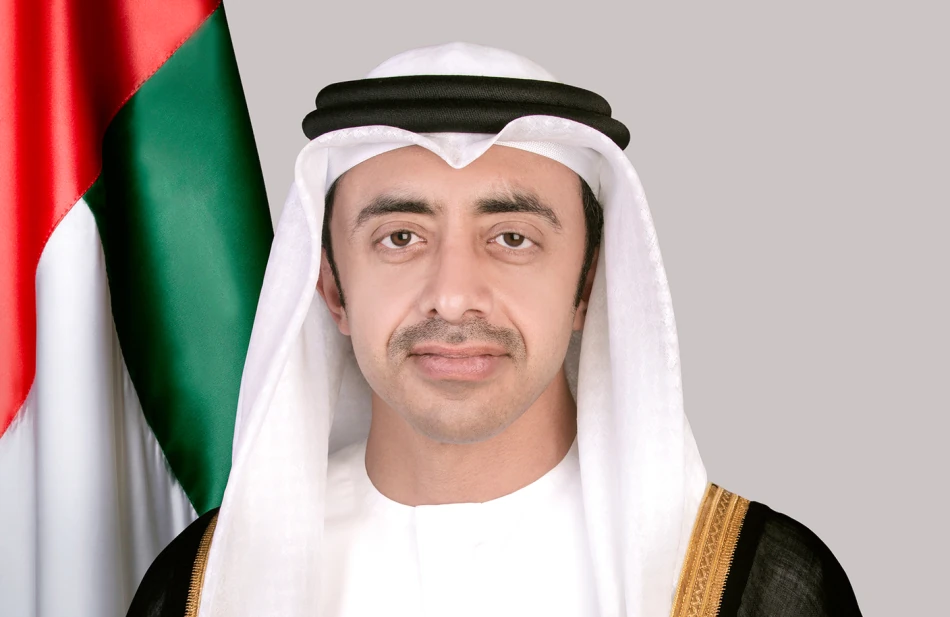
UAE Minister Emphasizes Commitment to Sustainable Global Collaboration for Peace and Inclusion
UAE Pushes for UN Reform as Sheikh Abdullah Leads High-Stakes Diplomatic Mission
The UAE is making a bold play for global influence at the UN General Assembly's 80th session, with Foreign Minister Sheikh Abdullah bin Zayed leading a heavyweight delegation to New York. The Emirates isn't just showing up—it's pushing hard for UN reforms and positioning itself as a key player in solving the world's biggest problems, from climate change to AI governance.
Why This UN Session Matters More Than Most
This isn't your typical diplomatic gathering. The UAE delegation will tackle some of the most pressing issues facing the world right now: reforming the UN itself, managing climate threats, and even launching global talks on AI governance. Sheikh Abdullah made it clear that the UAE sees multilateral cooperation as the only real way to solve today's interconnected crises.
"When we look ahead to the next eight decades, the UN must be more flexible, efficient, and effective," Sheikh Abdullah said. The message is simple: the current system isn't working well enough, and it needs fixing.
The UAE's Strategic Priorities
UN Reform Takes Center Stage
The UAE is backing the "UN 80 Initiative," which aims to make the organization more efficient and effective. This makes sense from the Emirates' perspective—as a smaller nation punching above its weight, it benefits from strong international institutions that give all countries a voice.
Ambassador Mohammed Abushahab, the UAE's permanent representative to the UN, put it bluntly: multilateral action isn't optional anymore. It's necessary for building a more secure and prosperous future.
Climate Leadership Continues
The UAE's participation in the Climate Action Summit shows they're not backing down from their climate leadership role after hosting COP28. Dr. Sultan Al Jaber, who led COP28 and serves as the UAE's climate envoy, is part of the delegation—a clear signal that climate action remains a top priority.
This positioning makes business sense too. The UAE has invested heavily in renewable energy and wants to be seen as a climate leader, not just an oil producer.
High-Level Meetings Signal Global Ambitions
The UAE delegation will participate in several key events that reveal the country's strategic interests:
The Two-State Solution Conference shows continued engagement with Middle Eastern peace efforts. The AI governance dialogue launch positions the UAE as forward-thinking on technology issues. And the 30th anniversary of the UN World Conference on Women demonstrates commitment to social progress.
These aren't random choices. Each meeting aligns with the UAE's broader strategy of being seen as a responsible, progressive global player.
What This Means for Regional Dynamics
The UAE's approach contrasts sharply with other regional powers. While some Middle Eastern countries focus mainly on bilateral relationships or regional issues, the Emirates is clearly thinking globally.
This strategy has worked before. The UAE's diplomatic efforts have helped it become a key mediator in regional conflicts and a trusted partner for Western nations. Now they're applying the same approach to global governance.
The Power Delegation Sends a Message
The UAE isn't sending junior officials to New York. The delegation includes heavy hitters like Dr. Anwar Gargash, diplomatic advisor to the president, and multiple cabinet ministers covering trade, climate, and international cooperation.
This level of representation shows how seriously the UAE takes this UN session. For a country of less than 10 million people, fielding this kind of diplomatic firepower demonstrates real commitment to global engagement.
Looking Beyond the Speeches
The real test of the UAE's UN strategy won't be the formal speeches—it'll be the behind-the-scenes negotiations and relationship building. The Emirates has shown skill at finding common ground between different factions, whether in regional conflicts or international climate talks.
If the UAE can help broker meaningful progress on UN reform or climate action, it'll cement its reputation as a serious global player. But if these initiatives stall, it might expose the limits of what even the most ambitious middle powers can achieve in today's fractured international system.
The next week in New York will show whether the UAE's bet on multilateral diplomacy pays off—or whether the world's problems have grown too big for traditional diplomatic solutions.
Most Viewed News

 Sara Khaled
Sara Khaled






